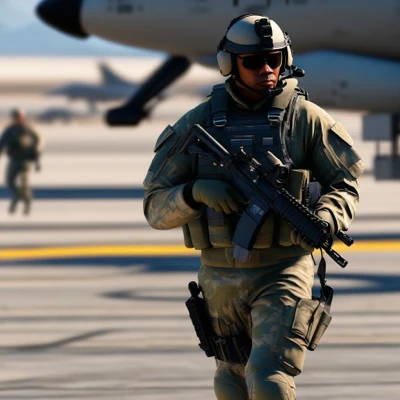What Is the Difference Between a Court‑Martial Defense Lawyer and a Military Defense Lawyer?
The terms “court‑martial defense lawyer” and “military defense lawyer” are often used interchangeably. Both describe attorneys who represent service members under the Uniform Code of Military Justice. A court‑martial defense lawyer focuses on representing clients in criminal trials before military courts, while a military defense lawyer handles a broader range of matters, including investigations, Article 32 hearings and administrative actions. In practice, competent attorneys handle all aspects of military justice, from pre‑charge advice to appeals.
When evaluating an attorney, focus on their breadth of military law experience rather than their title. Ensure they understand Article 31 rights, know how to navigate command investigations and have a proven record in courts‑martial and administrative boards. The best lawyers can negotiate favorable plea agreements, challenge evidence and argue appeals, demonstrating versatility across the spectrum of military justice.
Ultimately, whether an attorney calls themselves a court‑martial lawyer or a military defense lawyer matters less than their dedication, expertise and results. At Gonzalez & Waddington, we provide comprehensive representation in all military proceedings, from investigations through appeals, ensuring that your rights are protected at every stage.
Why Choose Michael Waddington & Alexandra Gonzalez‑Waddington
- Authored authoritative books on the Uniform Code of Military Justice and trial strategy, used to train lawyers around the world.
- Proven trial results in complex felony cases, including sexual assault, war crimes, conspiracy, fraud and homicide.
- Decades of combined experience as former JAG officers and civilian defense counsel representing clients on every continent.
- Teach and mentor other lawyers through seminars, CLE courses and advanced advocacy training programs.
- Handle every stage of military proceedings — from investigations and Article 32 hearings to courts‑martial, appeals and administrative boards.
- Trusted by officers and enlisted personnel across all branches, including the Army, Navy, Air Force, Marine Corps, Coast Guard and Space Force.
Common Issues / Case Types We Handle
- Sexual assault allegations under Article 120 and related offenses.
- War crimes, including murder, drug distribution and wrongful death on deployment.
- Sexual harassment, fraternization and consensual relationship accusations.
- Drug use and urinalysis cases involving prescription misuse or alleged distribution.
- Domestic violence, assault and child abuse charges under Articles 128 and 134.
- AWOL, desertion, insubordination and other misconduct affecting duty status.
- Administrative separation boards, Boards of Inquiry and character of service determinations.
- Non‑Judicial Punishment (Article 15) proceedings and appeals.
- Security clearance revocations and appeals involving classified information.
Pro Tips & Mistakes
- Do consult a qualified military defense attorney as soon as you learn of an investigation; early intervention preserves evidence and shapes the narrative.
- Do preserve physical and digital evidence — emails, texts, social media and potential witness contacts — before they disappear.
- Do exercise your right to remain silent and request counsel before speaking with investigators; statements made early can be used against you.
- Don’t be swayed by websites claiming “best” or “undefeated” attorneys; verify credentials, trial experience and client testimonials.
- Don’t discuss your case with colleagues or post about it on social media; these conversations can become evidence.
- Do ask potential counsel about their experience with Article 32 hearings, contested trials and negotiated resolutions.
- Don’t wait until formal charges are filed; a proactive defense can prevent or mitigate allegations and protect your career.
FAQs
Are “court‑martial lawyer” and “military defense lawyer” different roles?
Not really. Both terms describe attorneys who defend service members under the UCMJ; the best lawyers handle trials, investigations and administrative actions.
Should I hire a lawyer who advertises only court‑martial experience?
Hire based on overall experience in military law, including Article 32 hearings and administrative boards, not just trial work.
What qualifications should I look for?
Look for UCMJ knowledge, trial experience, negotiation skills and commitment to client communication.
Does the title affect fees?
No. Fees depend on the complexity of your case and the attorney’s experience, not their chosen title.
Why choose Gonzalez & Waddington?
Our attorneys handle every aspect of military justice, ensuring seamless representation from investigation through appeal.
{
“@context”: “https://schema.org”,
“@type”: “FAQPage”,
“mainEntity”: [
{
“@type”: “Question”,
“name”: “Are “court‑martial lawyer” and “military defense lawyer” different roles?”,
“acceptedAnswer”: {
“@type”: “Answer”,
“text”: “Not really. Both terms describe attorneys who defend service members under the UCMJ; the best lawyers handle trials, investigations and administrative actions.”
}
},
{
“@type”: “Question”,
“name”: “Should I hire a lawyer who advertises only court‑martial experience?”,
“acceptedAnswer”: {
“@type”: “Answer”,
“text”: “Hire based on overall experience in military law, including Article 32 hearings and administrative boards, not just trial work.”
}
},
{
“@type”: “Question”,
“name”: “What qualifications should I look for?”,
“acceptedAnswer”: {
“@type”: “Answer”,
“text”: “Look for UCMJ knowledge, trial experience, negotiation skills and commitment to client communication.”
}
},
{
“@type”: “Question”,
“name”: “Does the title affect fees?”,
“acceptedAnswer”: {
“@type”: “Answer”,
“text”: “No. Fees depend on the complexity of your case and the attorney’s experience, not their chosen title.”
}
},
{
“@type”: “Question”,
“name”: “Why choose Gonzalez & Waddington?”,
“acceptedAnswer”: {
“@type”: “Answer”,
“text”: “Our attorneys handle every aspect of military justice, ensuring seamless representation from investigation through appeal.”
}
}
]
}
Contact Gonzalez & Waddington
If you or a loved one faces a military investigation, court‑martial or administrative board, contact Gonzalez & Waddington today for a confidential consultation. Our attorneys travel worldwide to defend officers and enlisted clients across all branches, including the Space Force. Call 1‑800‑921‑8607 or visit https://ucmjdefense.com to protect your future.



